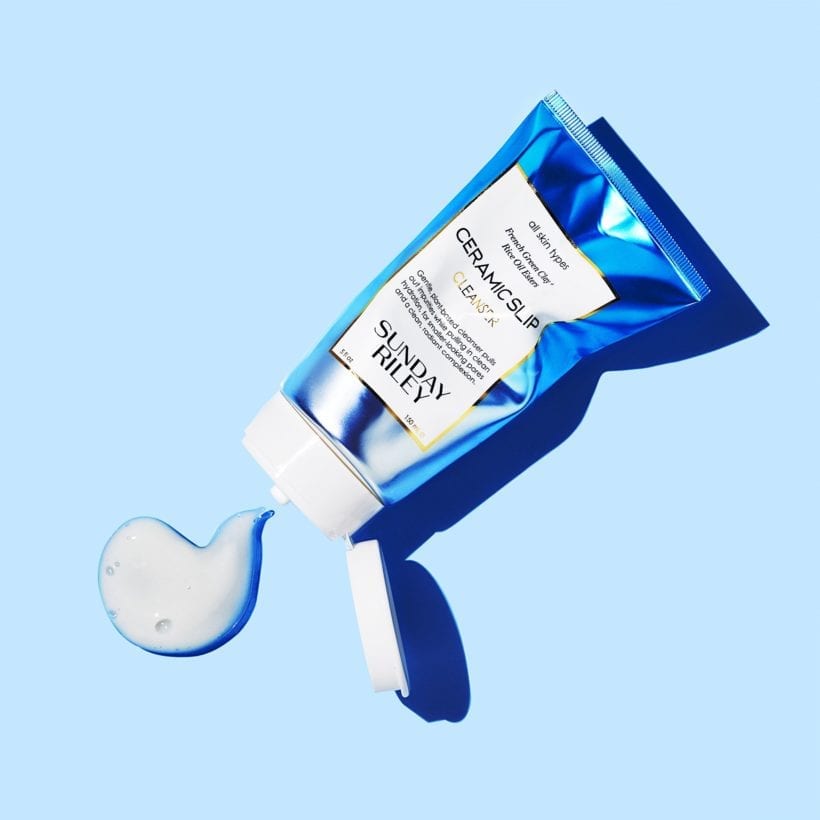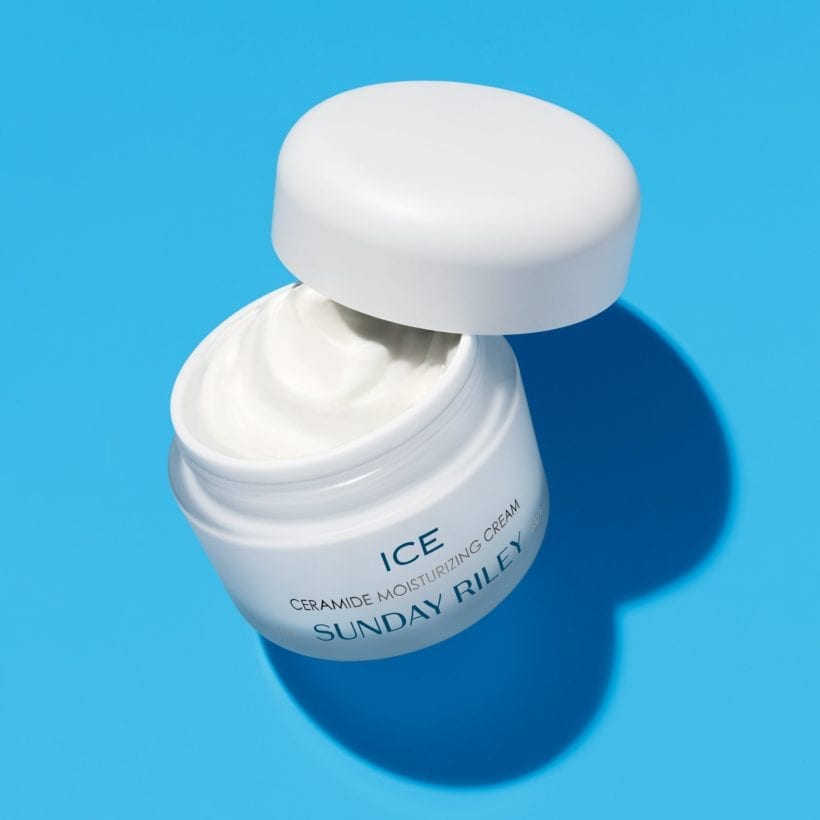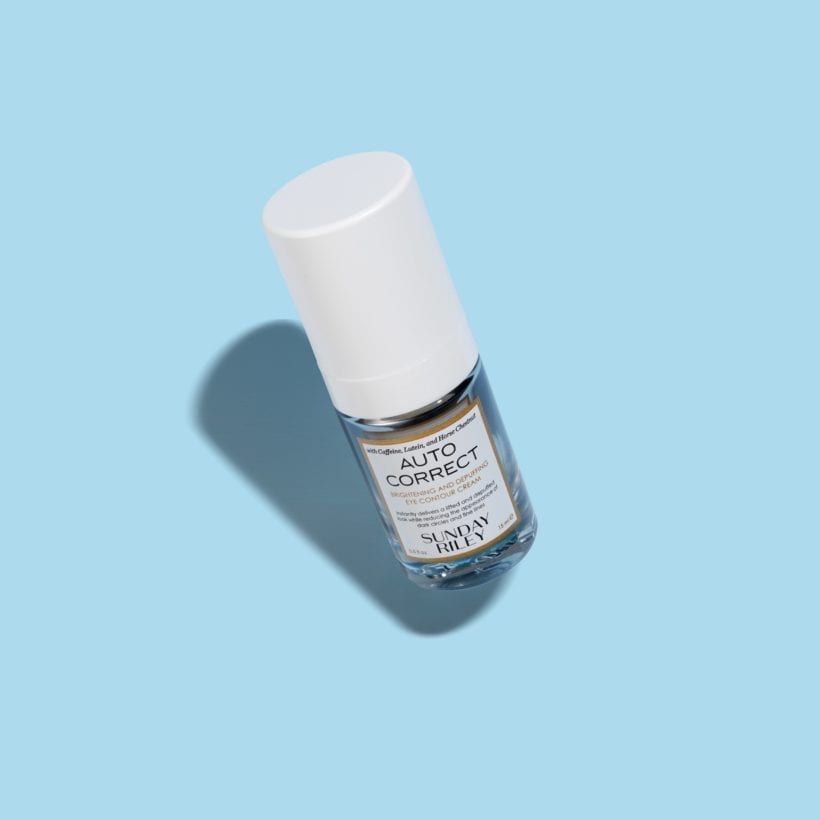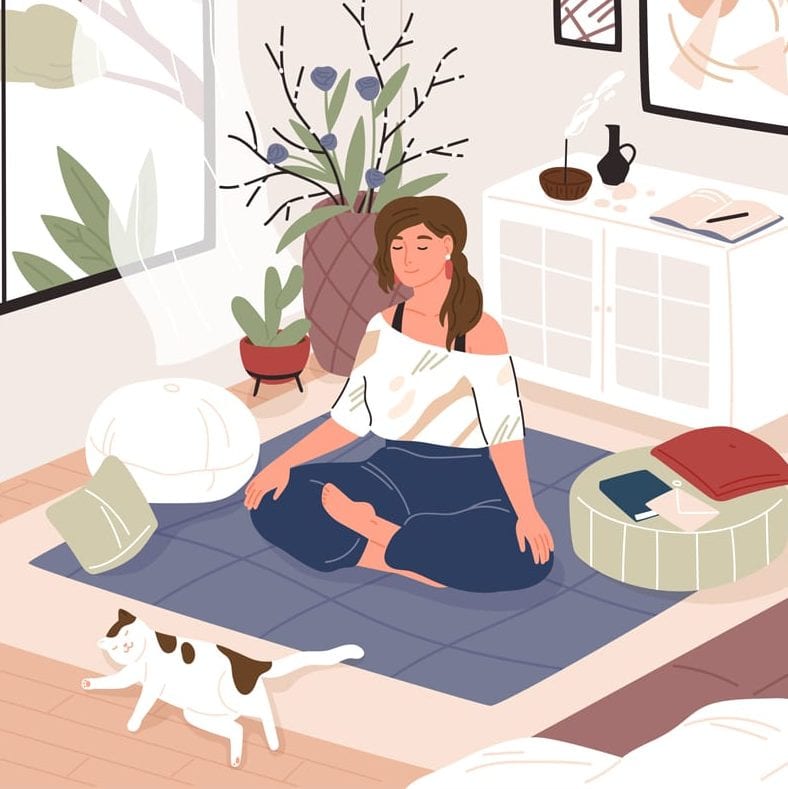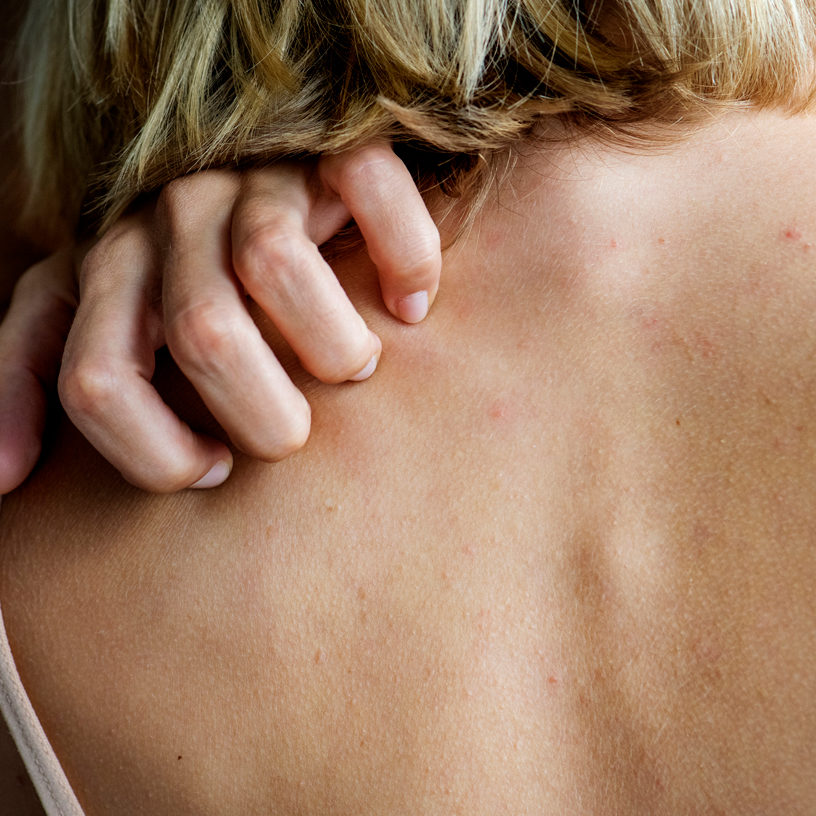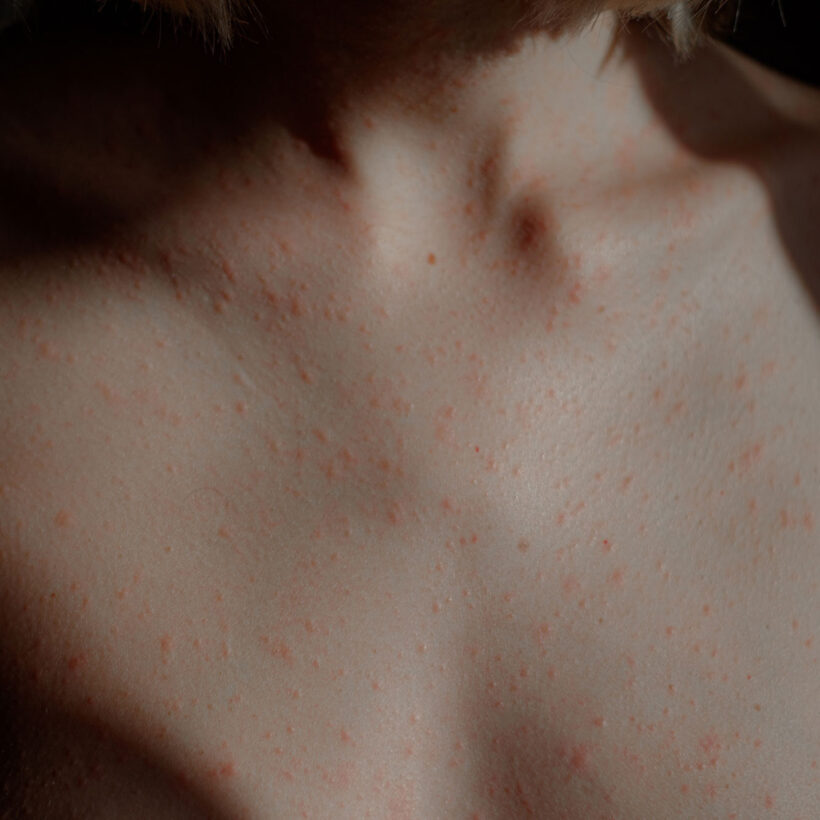Stress is a normal bodily reaction. It’s something that most of us can attest to feeling now and then, at some periods of life more than others — especially in the last few years as we continue to navigate the global pandemic. An estimated 67% of Americans have reported feeling an increase in stress levels since the pandemic’s onset in March of 2020, per the American Psychological Association.
While we associate this stress with poor sleep, high anxiety, and fluctuating moods, we often forget that stress can affect other areas of our body, including our skin. “The skin responds to psychological stress, with the interplay of skin immune cells, hormones and neurotransmitters, and complex stress-induced networks are active in many skin diseases such as acne, psoriasis, atopic dermatitis, chronic urticaria, etc.,” explains Elaine Kung, M.D.

Throughout the years, Dr. Kung has treated many high school- and college-aged students with acne flares around their midterm and finals periods. She has also treated many adults who’ve complained about skin rashes that cropped up during highly stressful life experiences. “Atopic dermatitis and eczema patients, specifically, have been reported to have anxiety and depression, as stress can negatively affect skin’s permeability barrier function and homeostasis,” Dr. Kung explains. “Stress also contributes to the immune and inflammation dysfunction in people, which could lead to a vicious cycle so that stress is both a consequence of living with psoriasis and a cause for psoriasis exacerbation.”
You may have even noticed that after a night of poor sleep, your skin suffers the consequence — and this is no coincidence. When your body has not had a restful sleep, the stress hormone cortisol rises and can directly impact the appearance of your skin.
Here, dermatologists share key signs that signal your skin is stressed out — and what to do about each.
Meet the Experts
Elaine Kung, M.D. is a New York City-based cosmetic dermatologist.
Debra Jaliman, M.D. is a NYC-based dermatologist, Assistant Professor of Dermatology Icahn School of Medicine at Mount Sinai, and author of Skin Rules.
Brendan Camp, M.D. is a Manhattan-based dermatologist at MDCS Dermatology.
Marisa Garshick, M.D. is a dermatologist at Medical Dermatology & Cosmetic Surgery (MDCS) in New York.
You’re experiencing acne
Stressed skin often shows up in the form of pesky blemishes, and this is all due to the rise of the stress hormone cortisol, explains Dr. Camp. “Elevations in cortisol level contribute to a hormonal cascade that can contribute to increased sebum production that contributes to the formation of comedones, which are the incipient lesions of acne,” he says. “When the skin is stressed, we tend to manipulate it through picking or popping things we don’t think belong, but picking skin or popping pimples only increases the risk of infection, as well as discoloration and scarring.”
How to fix stressed skin:

If you’re suffering stress-induced breakouts, it’s important to have a good regimen of washing your face using cotton pads instead of using your fingertips, warns Debra Jaliman, M.D. She also recommends using a gentle cleanser that won’t dry out your skin, followed by a salicylic or glycolic acid-containing toner. “You can also use a clay mask which helps to get rid of the impurities in the skin.” Sunday Riley Ceramic Slip Cleanser gives you the best of both worlds with a gentle formula that features green clay that helps clear our pores while adding hydration.
Your skin is dehydrated
Dehydrated skin refers to a reduced amount of water in the skin, explains Brendan Camp, M.D. “Skin becomes dehydrated when too much water evaporates from it, or it is unable to retain moisture and tends to be itchy, dull in appearance, and show fine lines more easily,” he says.
How to fix stressed skin:
The best thing you can do to treat the signs of stress caused by dehydrated skin is to avoid using harsh active ingredients as they can be extra irritating for dehydrated skin, according to Marisa Garshick, M.D. “For this reason, it is often best to avoid harsh products with the exception being if you are dealing with breakouts, in which case benzoyl peroxide, salicylic acid or retinoid use may be helpful.” Instead, focus on skin barrier replenishing ingredients like the ceramides found in Sunday Riley ICE Ceramide Moisturizing Cream and hyaluronic acid, that’s also a superstar in retaining moisture. Or, try Sunday Riley C.E.O. Afterglow Brightening Vitamin C Gel Cream that’s supercharged with THD ascorbate and sodium hyaluronate to help plump and firm the skin while adding long-lasting hydration.
You’re breaking out in hives
According to the American Academy of Dermatology Association, hives and rashes often accompany stressful periods. They usually appear as round, itchy bumps that are red around the edges but white in the center.
How to fix stressed skin:
They can usually be treated with over-the-counter Benadryl, but Dr. Jaliman recommends adults use children’s formula, which can be put under the tongue, so it doesn’t make you drowsy. “You can also use an over-the-counter hydrocortisone for a spot or two, or even an aloe vera-containing product that is fragrance-free,” she says. “You can also take aloe directly from the plant and use it on your hives to calm them down.”

Your undereyes are dark and puffy
“When people are stressed, they tend to have dark discoloration under their eyes, and often you see bags under their eyes cause they haven’t slept well,” says Dr. Jaliman.
How to fix stressed skin:
Dr. Jaliman recommends using ice packs under the eyes or frozen peas for just 10 or 15 minutes to help with the swelling. “You can also use a hemorrhoid cream, which removes the swelling.” In addition, she suggests using a concealer with brightening ingredients for the darkness, which helps improve the reflection under the eyes. (We love the Yves Saint Laurent Touche Eclat All-Over Brightening Pen that uses vitamin E and Ruscus extract to illuminate shadows and skin dullness.) “In the long term, you can use products which contain licorice extract and products with caffeine which is a vasoconstrictor,” she adds. Sunday Riley Autocorrect Brightening and Depuffing Eye Contour Cream include caffeine and Brazilian ginseng root extract to instantly reduce the appearance of puffiness and raccoon eyes.
We only recommend products we have independently researched, tested, and loved. If you purchase a product found through our links, Sunday Edit may earn an affiliate commission.

